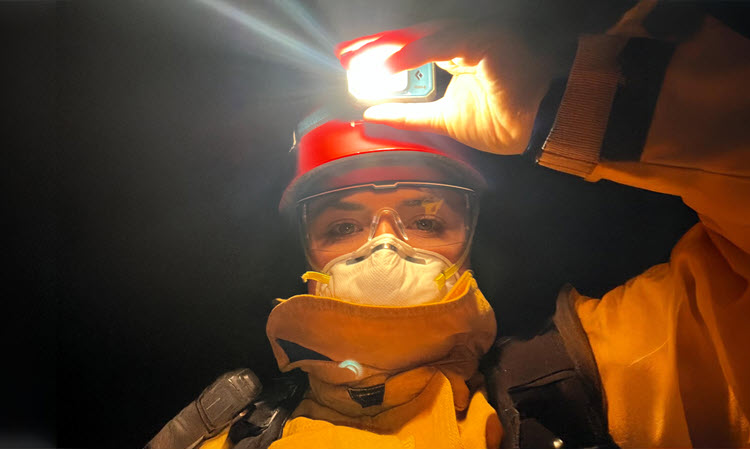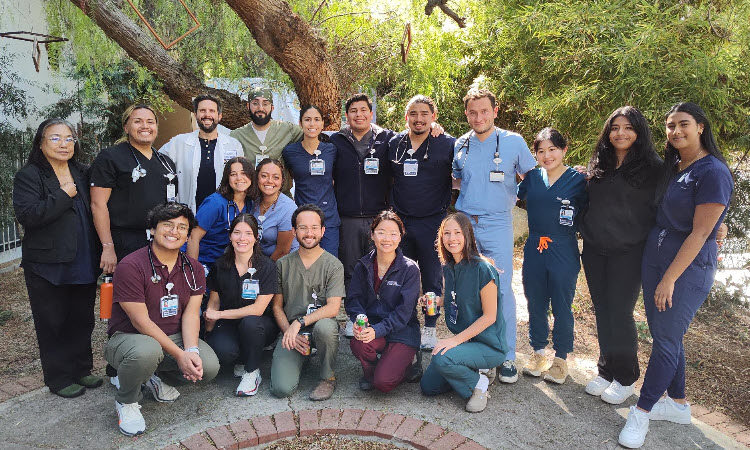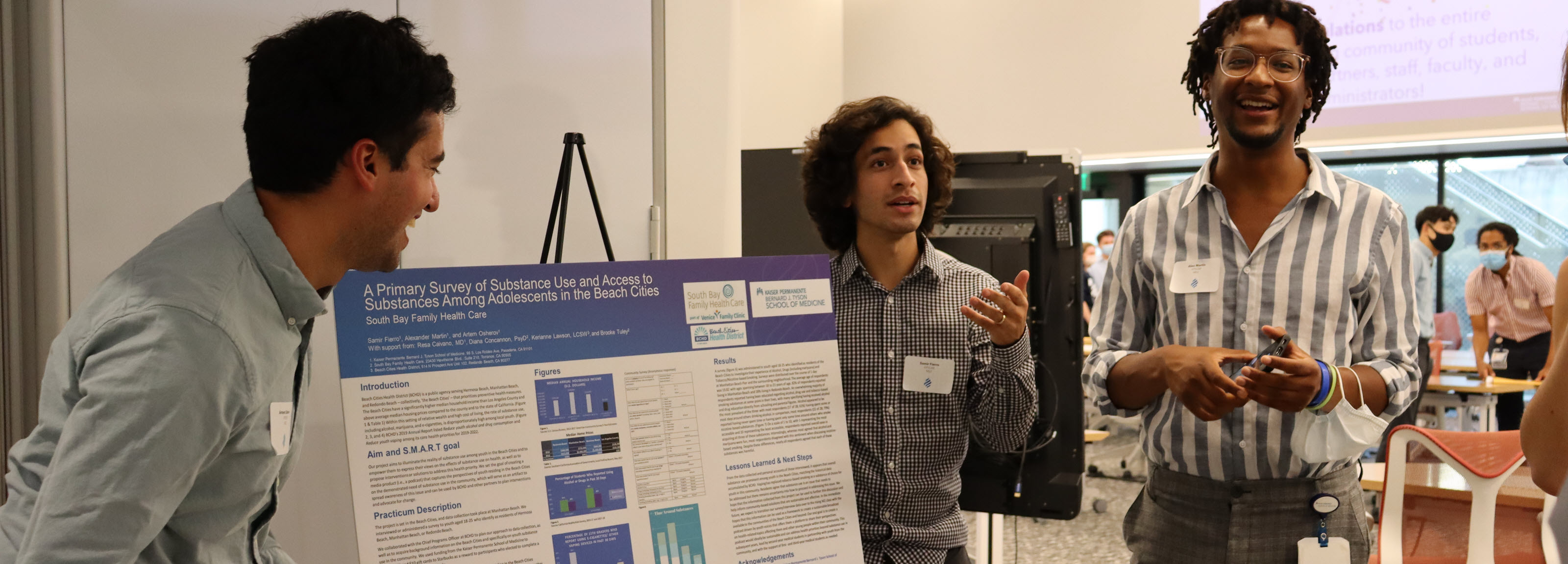
At the Kaiser Permanente Bernard J. Tyson School of Medicine, we’re committed to serving and working with our communities and neighbors, locally and around the world. Together, we are establishing long-term relationships to strengthen healthcare and improve health outcomes in underresourced areas.
We all play a role. Through Service-Learning, global health initiatives, volunteerism, and areas of our school curriculum, students and faculty from all disciplines and departments across the school are helping to build bridges between medicine, medical education, and the lives of people who need care most.
Community Engagement Leadership Collaborative
The Community Engagement Leadership Collaborative (CELC) supports outreach efforts by the school to improve health and healthcare in the communities we serve. Convened by the Office of Community Engagement and Government Affairs, its members are subject matter experts who work with nonprofits, care providers, and other locally based organizations in neighborhoods where KPSOM students are actively engaged in community-based rotations. These leaders act as our thought partners, helping the school and our students make meaningful connections with our communities.
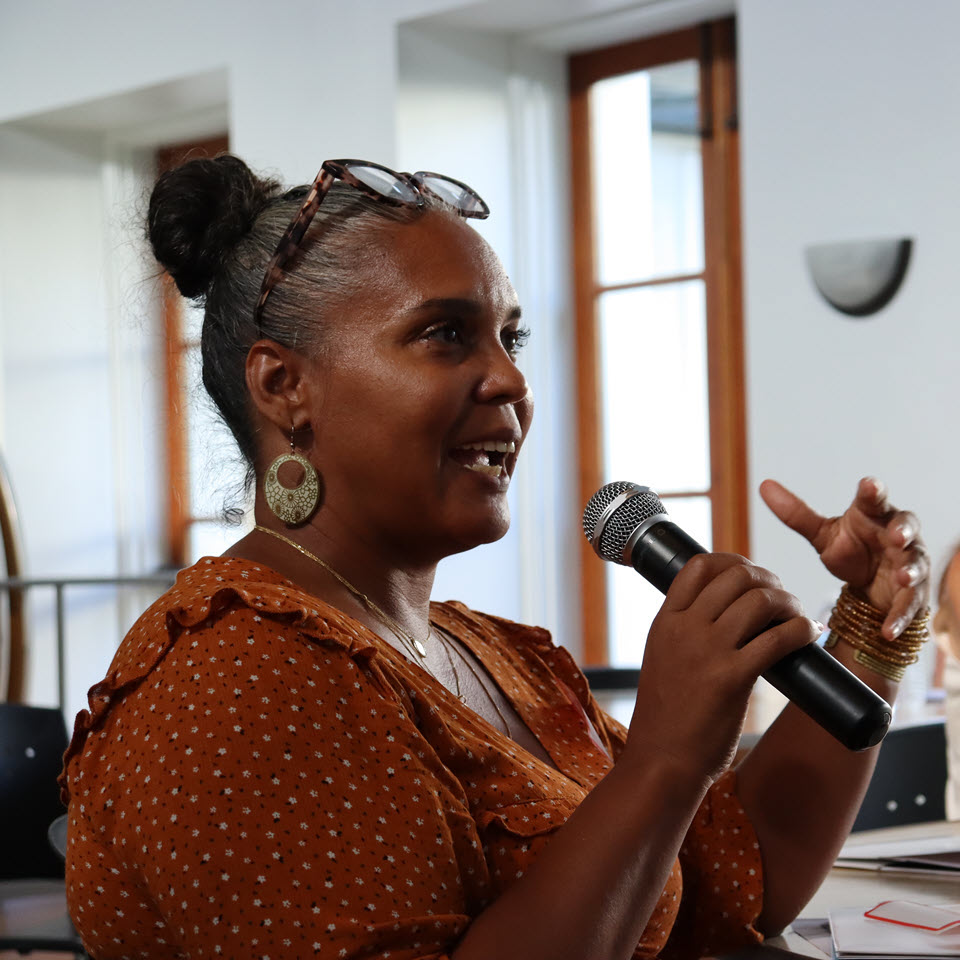
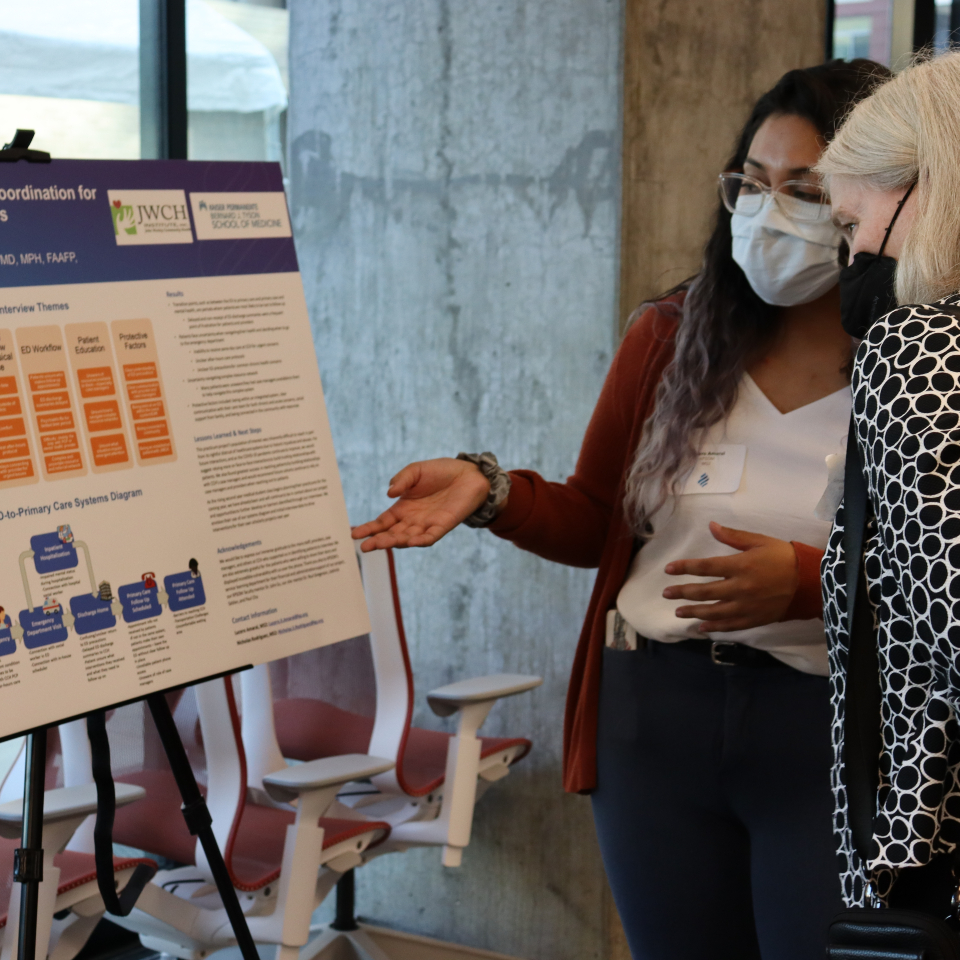
Service-Learning
KPSOM’s Service-Learning curriculum is one of the key components of every student’s interaction with the communities we serve. By working with organizations that are meeting serious healthcare challenges every day, students learn to be knowledgeable, credible, and trusted partners to the patients, communities, and service providers with whom they are collaborating.
The Service-Learning course provides students with deep experience while they are placed at Federally Qualified Health Centers (FQHCs). They acquire skills necessary to be more well-rounded physicians, capable of understanding the needs faced by all populations and the underlying factors impacting their communities.
Community Medicine Rotations
To gain a deeper understanding of the socioeconomic factors underlying health outcomes, our students spend four weeks with a community-based clinic or provider organization of their choosing. The four-week-long Community Medicine Rotation is a selective, a required part of the MD curriculum. Students choose whether to do their rotation in Year 3 or 4, and they may select from a list of partner organizations, where they help to provide care to some of the most vulnerable populations in Southern California, including unhoused persons, incarcerated persons, and other communities lacking health and healthcare resources.
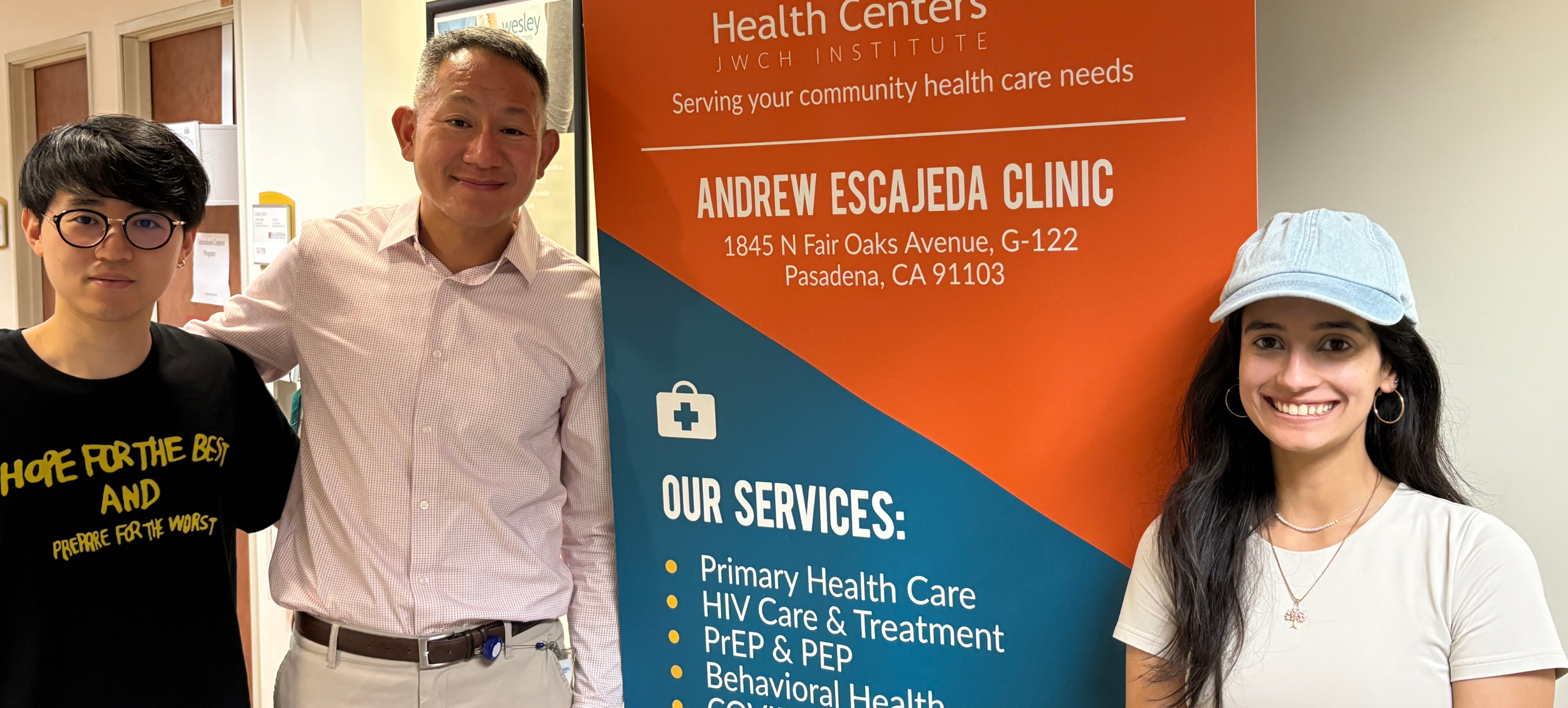
Student-Run Clinic
KPSOM students have been actively engaged in bringing healthcare to our communities and neighborhoods where it is needed most. In partnership with JWCH, a local Federally Qualified Health Center, and in collaboration with KPSOM faculty physicians and local healthcare providers, they are operating a Student-Run Clinic at their JWCH Pasadena site to provide affordable services to an under-resourced area. Facilitated by the Office of Community Engagement and Government Affairs, the clinic is independently run by students along with KPSOM faculty physician oversight on a volunteer basis, outside their medical school coursework, and provides valuable experience on the front lines of care and advocacy.
Community Engaged Research
Community engaged research, or CEnR, is an approach that incorporates people and communities throughout the entire research process. The method is a blend of science (from psychology, sociology, cultural anthropology, and other disciplines), organizing concepts (from literature such as community participation, community mobilization, and constituency building), and adaptive skill (involving active listening, understanding, and effectively responding to community needs and interests).
The Office of Community Engagement and Government Affairs offers CEnR support to the Office of Research and Scholarship by helping to identify community-partnered scholarly projects, providing faculty representation on the Scholarly Project Oversight Panel, and providing faculty mentors for students in the creation of community-engaged scholarly projects (some of which are derived from the Service-Learning practicum). The Office of Community Engagement and Government Affairs also develops tools and trainings to support CEnR efforts and conducts community-engaged, extramural research on clinical and translational science.
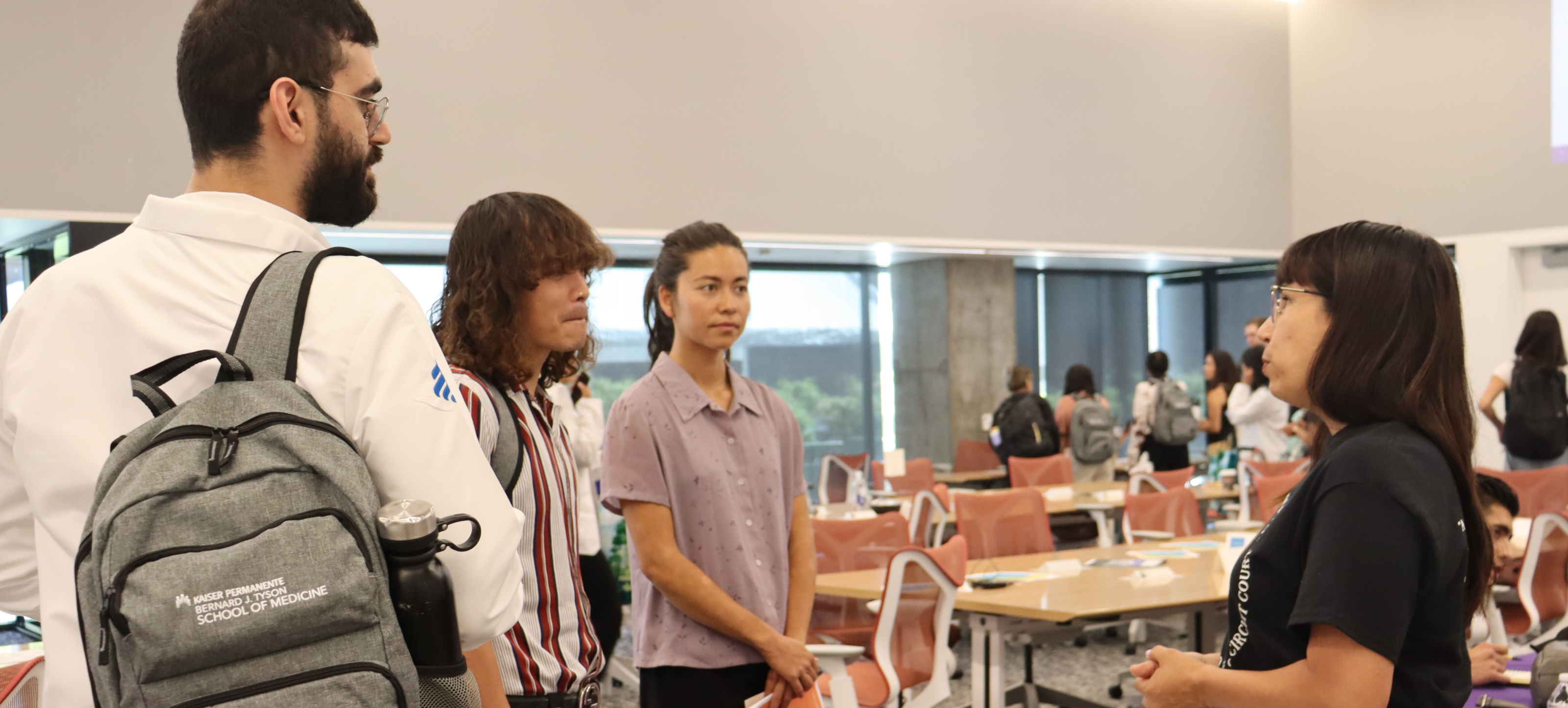
Community Forums and Events
Dialogue is key to raising awareness and finding solutions to our most pressing health challenges. Through the KPSOM Speaker Series, panel discussions, and other special events, we bring community voices to our campus, as well as experts in the fields of medical education, public health, research, and healthcare, to engage in and share presentations on the health issues facing all our communities.
Office of Community Engagement and Government Affairs
The Office of Community Engagement and Government Affairs supports school initiatives to explore and collaborate with populations and communities in Southern California. We integrate the school and the community by fostering relationships with area health centers, nonprofits, educational institutions, and other organizations, and we support students and faculty in their outreach to improve health and healthcare in communities the school serves.
